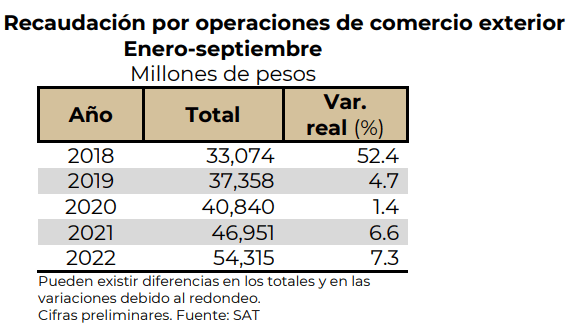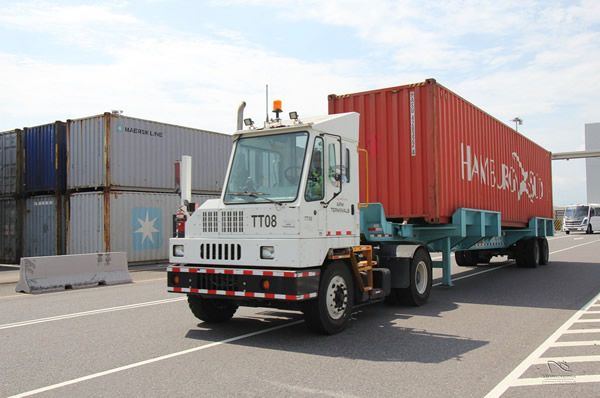At the end of September 2022, the Mexican Ministry of Finance and Public Credit (SHCP) carried out 303 reviews of which 331 Administrative Procedures in Customs Matters (PAMA’s) were initiated with an approximate value of 1,414.7 million pesos.
The PAMA’s executed derived from in-depth and quick home visits (Art. 42, Sections III and V of the Federal Fiscal Code), verifications of foreign merchandise in transport and verifications of foreign vehicles in transit for not proving the legal importation, stay or possession of the merchandise in national territory.

With regard to the foreign trade controls carried out by the Tax Administration Service (SAT), actions subsequent to customs clearance, during January-September 2022 special emphasis was placed on identifying evasive behavior in real time in the sectors at greatest risk.
Among others, these sectors are automotive, steel, textile and apparel, electronics, wines and spirits, used vehicles, and hydrocarbons.
The government also carried out constant monitoring of taxpayers operating under authorizations, certifications or foreign trade promotion programs such as IMMEX, PROSEC, VAT/IEPS Certification, Authorized Economic Operator, Bonded Warehouses, Border Decrees, among others.
SHCP
In order to contribute to the institution’s goals, the annual foreign trade tax program is focused on increasing collection through automation and the development of data models to improve and make processes more efficient, which as of the third quarter of 2022 represents a real increase of 3,673.4 million pesos (7.3%), with respect to the same period of the previous year.
In Mexico, all measures related to foreign trade, such as the establishment, increase, decrease or elimination of tariffs or tariff preferences, including those decreed by the Executive Branch, must be evaluated and approved by the Foreign Trade Commission (COCEX) prior to their application.
If the Commission does not approve the measure, the relevant institutions may revise and resubmit it.
The Commission also periodically reviews existing measures, ex officio or at the request of interested parties, to issue non-binding recommendations.
The Commission is composed of the Ministry of Economy (who presides), the SRE, the SADER, the SEMARNAT, the SSA; and two autonomous constitutional agencies: the Bank of Mexico and the COFECE.
![]()

